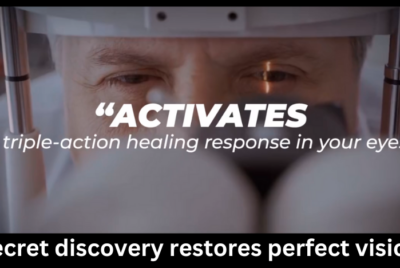What Are The Disadvantages Of Cataract Surgery
Explore what are the disadvantages of cataract surgery. Uncover the risks and benefits to make an informed decision about your eye health. Learn in our comprehensive guide what to expect and how to prepare. As someone passionate about vision health and eager to provide helpful suggestions, I understand the concerns and questions you may have about cataract surgery. While cataract surgery is generally safe and effective, it’s essential to be aware of its potential disadvantages. In this “What are the disadvantages of cataract surgery” article, we will explore the drawbacks associated with cataract surgery and provide helpful suggestions on how to overcome them.
Introduction To Disadvantages Of Cataract Surgery
Cataracts are a common age-related vision problem that affects millions of people worldwide. They occur when the natural lens of the eye becomes cloudy, leading to blurry vision, difficulty seeing at night, and increased sensitivity to glare. Cataract surgery is the most common treatment option to restore clear vision. However, like any surgical procedure, it has its disadvantages.
Understanding Cataracts
Before diving into the disadvantages of cataract surgery, let’s briefly understand what cataracts are. Cataracts develop gradually and are primarily caused by the aging process. Other factors that may contribute to cataract formation include prolonged sun exposure, smoking, certain medications, and underlying medical conditions such as diabetes.
The Benefits Of Cataract Surgery
Cataract surgery is a highly successful procedure with numerous benefits that significantly improve quality of life. It restores clear vision, making activities like reading, driving, and watching TV easier and more enjoyable. The procedure often enhances color perception, allowing you to see the world more vividly. It also increases safety by improving night vision, reducing the risk of accidents. Most patients experience a decrease in their dependence on prescription glasses or contact lenses. The surgery is quick, usually lasting only about 15-20 minutes per eye, and has a high success rate with minimal complications. Overall, cataract surgery provides a substantial, positive impact on daily living.
Disadvantages Of Cataract Surgery
Infection And Complications
As with any surgical procedure, there is a risk of infection and complications. Although rare, these risks can include bleeding, inflammation, or even infection in the eye. It is crucial to choose an experienced and skilled surgeon who follows strict sterilization protocols to minimize these risks.
Potential Vision Loss
Although cataract surgery aims to improve vision, there is a small risk of potential vision loss. Factors such as pre-existing eye conditions, the complexity of the surgery, or complications during the healing process can affect the final outcome. It’s essential to discuss any concerns or risks with your ophthalmologist before proceeding with the surgery.
High Costs
Cataract surgery can be expensive, especially if you opt for advanced lens technologies or premium IOLs. While it is generally covered by insurance, there may be out-of-pocket expenses. Understanding your insurance coverage and discussing the cost implications with your healthcare provider is important.
Pre-Existing Eye Conditions
If you have pre-existing eye conditions such as glaucoma or age-related macular degeneration (AMD), cataract surgery may not fully address these issues. It’s essential to have realistic expectations and understand that the surgery primarily targets cataracts and may not improve other underlying eye conditions.
Recovery Time
Recovery from cataract surgery typically involves a few weeks of healing. During this time, you may experience temporary blurred vision, mild discomfort, or sensitivity to light. It’s important to follow your surgeon’s post-operative instructions carefully and allow yourself time to heal fully.
Need For Corrective Lenses
Although cataract surgery can significantly reduce the need for glasses or contact lenses, some individuals may still require them for optimal vision. Depending on the type of IOL implanted during the surgery, you may still need glasses for activities such as reading or driving at night. Discuss your visual expectations and lifestyle with your ophthalmologist to determine the most suitable IOL for your needs.
Overcoming The Disadvantages Of Cataract Surgery
While the disadvantages of cataract surgery may seem concerning, it’s important to remember that they are generally rare and can be mitigated with proper precautions. To overcome these disadvantages:
The Choice Of Surgeon Is A Critical
Choose an experienced and reputable surgeon who specializes in cataract surgery. The choice of surgeon is a critical factor that can significantly impact the success of your cataract surgery. By opting for an experienced and reputable surgeon who specializes in cataract surgery, you can have peace of mind, knowing that you are in the hands of a skilled professional dedicated to your visual health and well-being.
Pre And Post-Operative Instructions
Follow pre and post-operative instructions provided by your surgeon diligently. Cataract surgery is a precise procedure, and the healing process is crucial for achieving optimal visual outcomes. By diligently following your surgeon’s pre and post-operative instructions, you actively participate in your own recovery and increase the chances of a successful and satisfying outcome.
Potential Risks Of Cataract Surgery
Discuss any concerns, pre-existing conditions, or potential risks with your ophthalmologist. Remember, your ophthalmologist is a highly trained professional who specializes in eye health and vision. They are there to address your concerns, provide guidance, and ensure the best possible outcomes for your cataract surgery. Open and honest communication with your ophthalmologist creates a partnership in your eye care journey, leading to a more successful and satisfying experience.
Long-Term Side Effects Of Cataract Surgery
Long-term side effects of cataract surgery are generally rare but can include posterior capsule opacity, a condition treatable with a simple laser procedure. Some patients may experience a slight shift in their refractive error, necessitating a change in their prescription glasses. Others could face an increased risk of retinal detachment, particularly if they are highly nearsighted. Glaucoma or elevated eye pressure is another potential long-term concern, requiring additional treatment. Chronic dry eye symptoms may also persist or worsen after surgery. It’s crucial to have regular eye check-ups to monitor for these and any other long-term complications.
Insurance Coverage For Cataract Surgery
Understand your insurance coverage and any out-of-pocket expenses associated with the surgery. By understanding your insurance coverage and any out-of-pocket expenses associated with cataract surgery, you can plan financially, maximize your insurance benefits, and explore options for making the surgery more affordable. This knowledge allows you to focus on the quality of care and achieving the best possible visual outcomes without any unexpected financial burdens.
Pros And Cons Of Cataract Surgery
Cataract surgery offers several notable advantages. It dramatically improves visual clarity, enhances color perception, and facilitates daily activities like reading and driving. Many patients find they rely less on glasses or contact lenses post-surgery. The procedure is quick, often taking just 15-20 minutes per eye, and boasts a high success rate with minimal complications.
However, there are some downsides to consider. The surgery can be costly, especially if you opt for premium intraocular lenses or laser-assisted techniques. Risks, although low, include inflammation, increased eye pressure, and infection. Some patients may still require glasses for specific tasks, and others could face long-term complications like posterior capsule opacity or retinal detachment.
Set Realistic Expectations
Set realistic expectations about the outcome of the surgery and the need for corrective lenses. Setting realistic expectations about the outcome of cataract surgery and the need for corrective lenses allows you to approach the surgery with a balanced perspective. It enables you to appreciate the significant improvements that cataract surgery can bring while also understanding the limitations and potential need for ongoing visual support. Your ophthalmologist can provide personalized guidance and help you develop realistic expectations based on your individual circumstances.
The Disadvantages Of Cataract Surgery – Conclusion
Cataract surgery is a highly effective treatment option for cataracts, offering significant improvements in vision and quality of life. While it’s crucial to be aware of the potential disadvantages, they can be minimized by choosing a skilled surgeon and having open communication with your healthcare provider. By understanding the risks and taking appropriate precautions, you can make an informed decision about cataract surgery and achieve the clear vision you desire.
Please note that this article should not replace professional medical advice. Consult a healthcare professional for an accurate diagnosis and tailored treatment plan.
Frequently Asked Questions (FAQs)
Is cataract surgery painful?
Cataract surgery is typically performed under local anesthesia, ensuring that you don’t experience any pain during the procedure. However, you may experience some mild discomfort or itching in the days following the surgery, which can be managed with prescribed medications.
How long does cataract surgery take?
The actual surgery usually takes around 10-20 minutes per eye. However, you should plan to spend a few hours at the surgical center or hospital for pre-operative preparations and post-operative monitoring.
Can I have both eyes operated on at the same time?
While it is possible to have both eyes operated on simultaneously, most surgeons prefer to operate on one eye at a time to minimize any potential risks or complications.
How soon will I notice an improvement in my vision after cataract surgery?
Many individuals experience improved vision within a few days after cataract surgery. However, it may take a few weeks for your vision to stabilize and fully optimize.
Are there any alternatives to cataract surgery?
In the early stages of cataracts, you may be able to manage your symptoms with vision correction aids such as glasses or contact lenses. However, surgery becomes the most effective treatment option as cataracts progress and significantly impact your daily life. Consult your ophthalmologist for personalized advice and recommendations for your situation.
Do you need glasses after cataract surgery?
After cataract surgery, some people still need glasses for tasks like reading or driving. The type of intraocular lens implanted and the presence of other eye conditions can affect the need for postoperative glasses.
Extra FAQs Related To Disadvantages Of Cataract Surgery
What are the disadvantages of laser cataract surgery?
Laser cataract surgery poses some disadvantages: It’s more expensive than traditional methods, carries a risk of inflammation and eye pressure spikes, and may not fully correct vision, necessitating additional treatments or glasses.
What are the most common problems after cataract surgery?
After cataract surgery, patients commonly experience dry eyes, increased eye pressure, and mild discomfort. Some may face complications like posterior capsule opacity, retinal detachment, or infection, requiring further treatment to address these issues.
Do eyes look different after cataract surgery?
Eyes generally don’t look different after cataract surgery to casual observers. However, those with a keen eye might notice the absence of a cloudy lens. The surgery mainly improves vision, not external appearance.
Is cataract surgery worth the risk?
Cataract surgery is worth the risk for most people, offering improved vision and quality of life. The procedure has a high success rate and low complication rate. However, individual circumstances, such as overall eye health, may affect the risk-benefit analysis.
What are the advantages of cataract surgery?
Cataract surgery improves visual clarity, enhances color perception, and increases independence by enabling activities like reading and driving. It often reduces dependence on glasses and offers a relatively quick recovery period with a low risk of complications.





